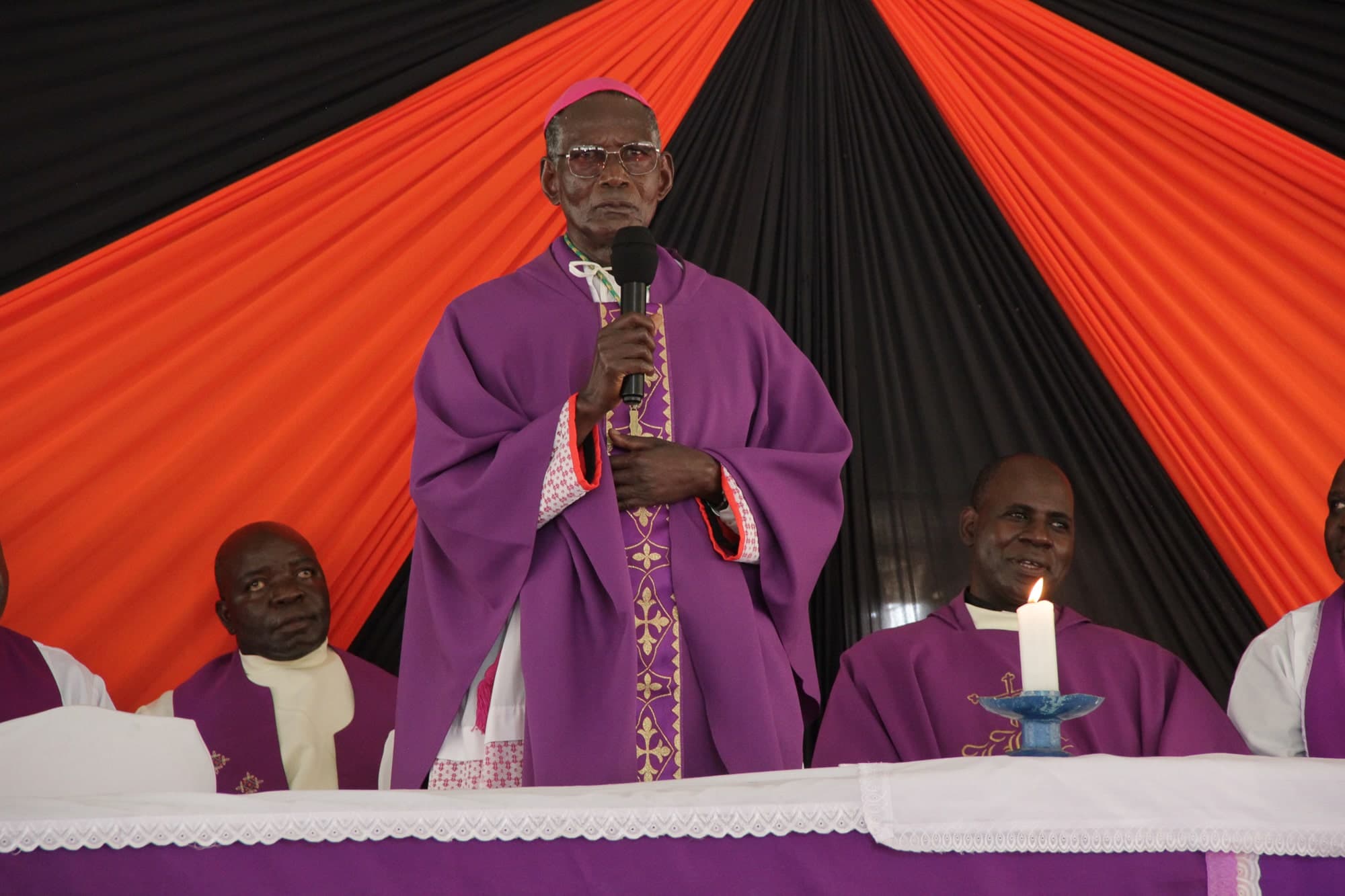We're loading the full news article for you. This includes the article content, images, author information, and related articles.
The passing of Bishop Philip Sulumeti marks the end of an era for a leader who not only built the Catholic Church in Western Kenya but also played a pivotal, calming role in the nation's turbulent constitutional reforms.

NAIROBI – Bishop Emeritus Philip Sulumeti, the revered founding bishop of the Catholic Diocese of Kakamega and a key figure in Kenya's constitutional history, has died at the age of 88. The announcement was made on Monday, November 10, 2025, by his successor, Bishop Joseph Obanyi Sagwe, who confirmed that Sulumeti passed away at 11:00 p.m. EAT on Sunday, November 9, 2025, while receiving treatment at Nairobi Hospital. His death has prompted an outpouring of tributes from religious and political leaders, recognizing a life dedicated to spiritual guidance, social development, and national service.
Born on August 15, 1937, in Kotur village, Busia County, Philip Sulumeti's journey began in a rural setting where the Catholic faith was still solidifying its roots. His early education in local mission schools set him on a path to the priesthood, a demanding journey through East Africa's early seminaries. His intellectual prowess eventually led him to Rome, where he earned both a Licentiate and a Doctorate in Canon Law from the Pontifical Urbaniana University. This academic distinction established him as one of the foremost ecclesiastical legal minds within the Kenyan Catholic Church. He was ordained as a priest on January 6, 1966, by Pope Paul VI.
Sulumeti’s ascent in the church hierarchy was swift. In 1972, at the age of 35, he was appointed Auxiliary Bishop of Kisumu. He would later serve as the Bishop of Kisumu starting in 1976. A significant moment in his career came on February 28, 1978, when he was appointed the first bishop of the newly created Diocese of Kakamega, which was carved out of the larger Kisumu Diocese. For the next 36 years, until his retirement on December 5, 2014, Bishop Sulumeti became synonymous with the growth of the church and community in Western Kenya.
His tenure was marked by tireless institution-building. He oversaw the establishment of over 40 parishes, hundreds of schools, and vital health facilities. Many of these institutions bear his name, a testament to his impact, including Bishop Sulumeti Girls in Lugari. He was instrumental in the development of major hospitals such as St. Mary's Mumias Mission Hospital and St. Elizabeth Mukumu Hospital, which remain critical healthcare providers in the region. For Sulumeti, education was a cornerstone of community transformation, a conviction that drove his efforts to expand learning opportunities for all.
Beyond his pastoral duties, Bishop Sulumeti carved out a legacy as a respected statesman and a voice of moderation in Kenya's often-fractious political landscape. His most significant national contribution came during the constitutional reform era of the early 2000s at the Bomas of Kenya. Amid deep political divisions, he chaired a crucial consensus-building committee. The committee's findings, widely known as the “Sulumeti Report,” provided a framework for resolving contentious issues like power-sharing and devolution, laying essential groundwork for the 2010 Constitution. Though the report was ultimately voted down in a chaotic session, his calm demeanor and commitment to dialogue earned him respect across the political divide. Leaders including former President Uhuru Kenyatta and Prime Cabinet Secretary Musalia Mudavadi have since hailed him as a moral compass and a champion of peace for his role during this period.
Throughout his nearly five decades of episcopal service, Bishop Sulumeti was known for his humility and a fatherly approach to leadership. He mentored and ordained numerous priests who would become senior church leaders, including Archbishop Maurice Muhatia of Kisumu and Bishop Mark Kadima of Bungoma. His episcopal motto, “Ut Unum Sint” (That They May Be One), was a guiding principle that reflected his lifelong commitment to fostering unity within the church and across Kenyan society. After two earlier requests for retirement on medical grounds were declined by Pope John Paul II and Pope Benedict XVI, his retirement was accepted by Pope Francis in 2014. In his passing, Kenya has lost not just a senior cleric, but a foundational leader who believed that service to God and service to country were inextricably linked.
Keep the conversation in one place—threads here stay linked to the story and in the forums.
Sign in to start a discussion
Start a conversation about this story and keep it linked here.
Other hot threads
E-sports and Gaming Community in Kenya
Active 9 months ago
The Role of Technology in Modern Agriculture (AgriTech)
Active 9 months ago
Popular Recreational Activities Across Counties
Active 9 months ago
Investing in Youth Sports Development Programs
Active 9 months ago